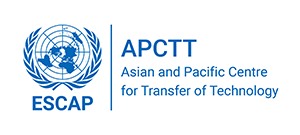A New Method to Synthesize Anti-malarial Drug and its Analogues
BACKGROUND Plasmodium Falciparum, the parasitic micro organism that causes the most clinically severe type of malaria is becoming increasingly multidrug resistant. New drug molecules are urgently required to be developed against such plasmodium strains. TECHNOLOGY DESCRIPTION Recently it has been discovered that naturally derived compounds called flinderoles show impressive anti-malarial activity. NCL scientists have developed a novel method for synthesizing flinderole analogues using a fully synthetic route (total synthesis) which has an overall yield of 17.2%. The process developed will enable to produce these anti-malarial compounds in commercial quantities.
Sector: Pharmaceuticals
Country: India
Area of Application: · Developing anti malarial drugs · Agriculture
Keywords: anti-malaria, drug molecules, flinderole synthesis, fully synthetic pathway,
Advantages: · Potentially could be used to treat drug resistant strains of Plasmodium falciparum · A simple and efficient process · The process developed results in high yields (17%) of flinderole analogues · The process is useful for the production of commercial quantities of these compounds
Environmental aspects:
Development Status: Laboratory Model
Legal Protection: Patent
Technical specifications:
Transfer Terms: Technology Licensing
Target Countries:
Estimated cost (US$):
Upload any relevant document:
Contact Person: National Chemical Laboratory, CSIR
Address: A208, PAML Building, National Chemical Laboratory Dr Homi Bhabha Road,
City: Pune
Country: India
Zip/Pin Code: 411007

